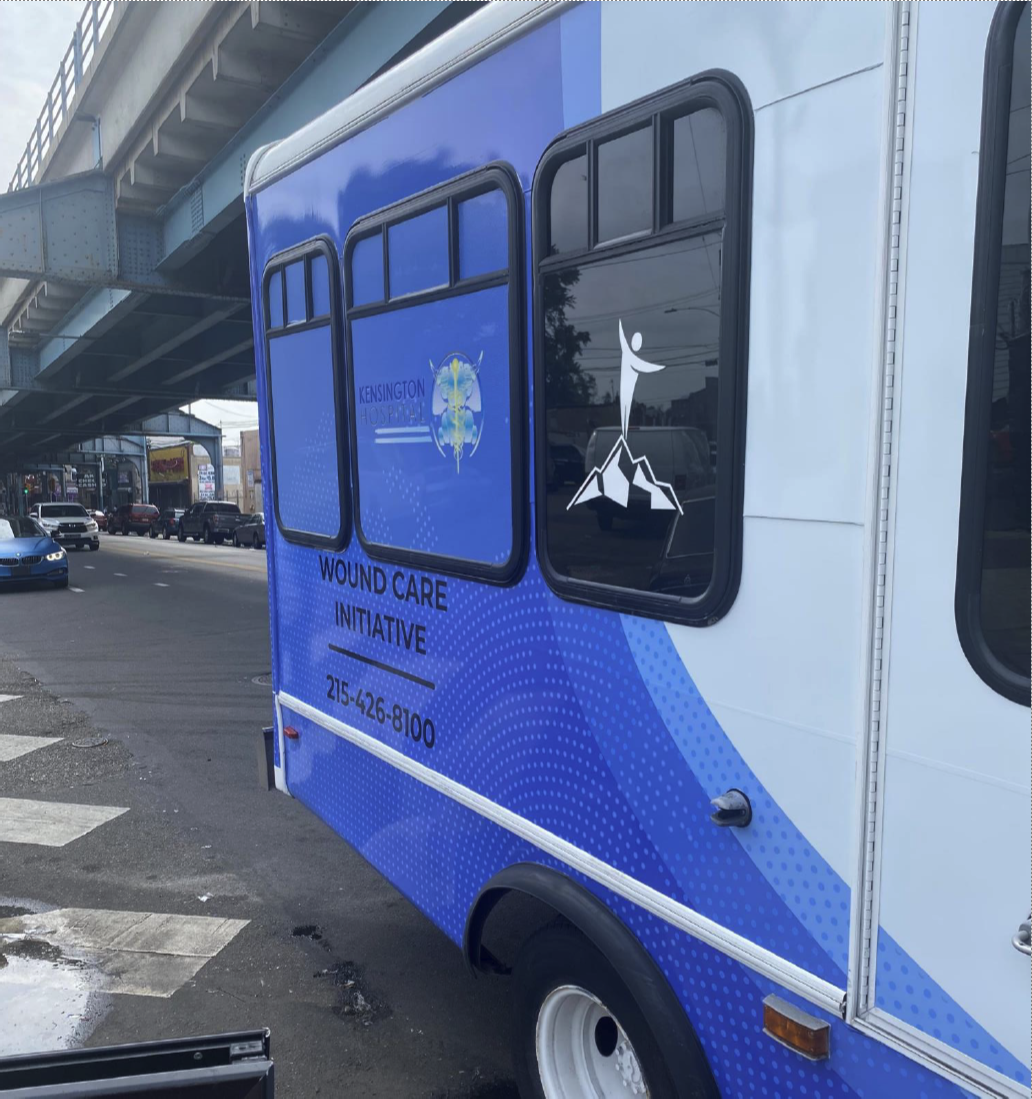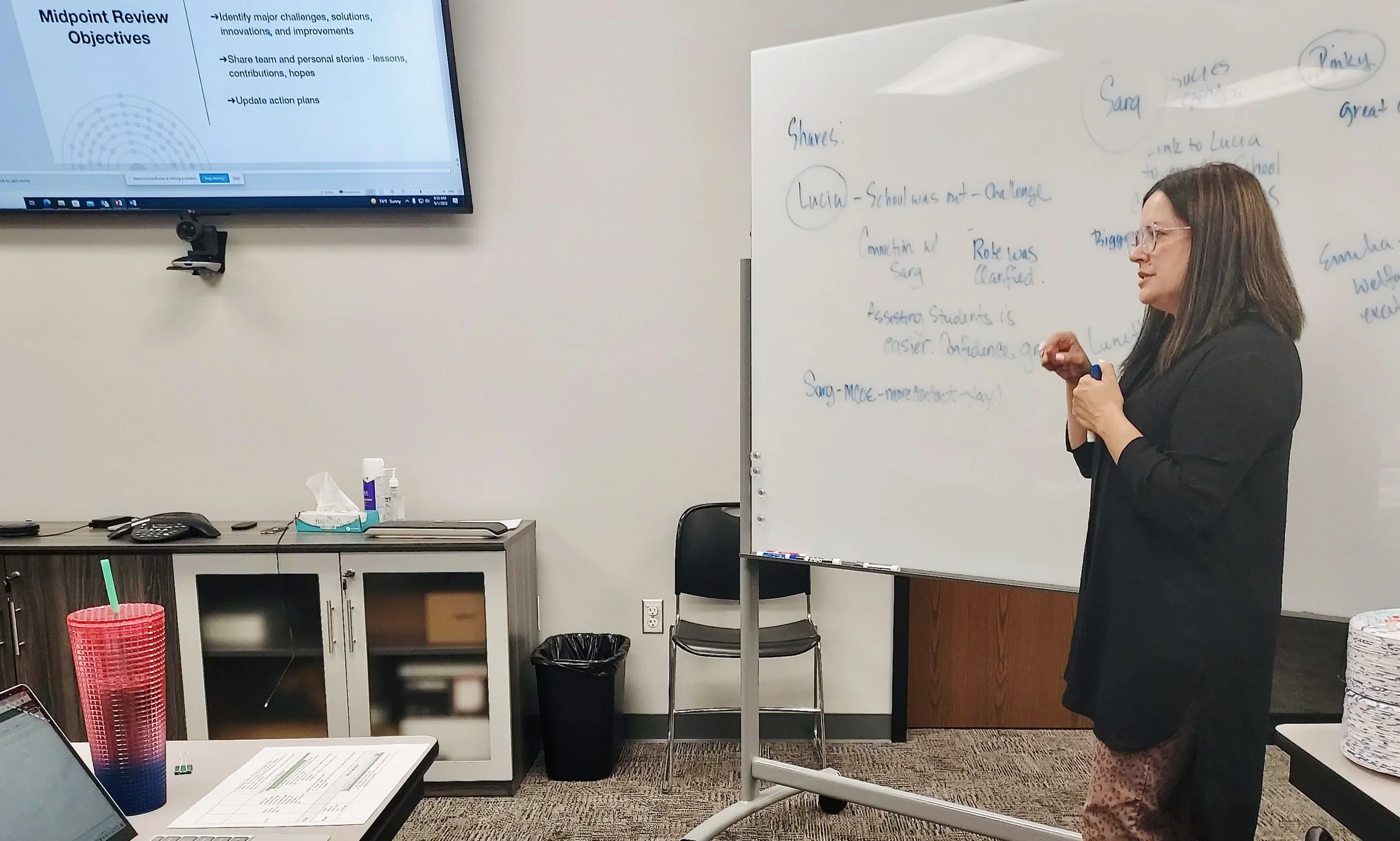What's the relationship between wound care and housing?
The Idea:
The 100-Day Challenge provides an opportunity for Teams to turn an idea into an innovation and combine innovations to establish long-term systems change.
The Team’s idea for a way to address both substance misuse and barriers to housing resulted in an innovative Mobile Wound Care Van, underpinned by new relationships and a culture of collaboration between behavioral health providers and homeless service agencies. Whilst this innovation is in itself already having an impact within the system, the way in which it has developed, which includes mechanisms to ensure ongoing resources and shifts in mindsets around the need for comprehensive care, indicates that a long-term systems shift is happening. Such a systems shift means that not only has the community benefited from a single innovative practice, but changes in behaviors and resource flows around that innovation will have wider positive impacts on how the system works to benefit those in need.
Kensington, a neighborhood in Philadelphia, PA, struggles with opioid misuse and homelessness in a concentrated area. Approximately half of Philadelphia's homeless population lives in encampments in Kensington; the area is also populated by people passing through Kensington to misuse opioids. As the epidemic worsened and people experiencing homelessness and substance misuse were in increasing need of services in the Kensington neighborhood, representatives from the Philadelphia homeless support agencies worked with the staff at Kensington Hospital on an idea: a mobile wound care van that could provide people experiencing homelessness with life-saving treatment.
The Innovations:
Spurred by collaboration among the Team members of the 100-Day Challenge, staff from the wound care van began treating people in the Kensington neighborhood within the first two weeks of the Challenge. This was the first licensed wound care van in PA. The mobile wound care van, which healthcare workers from Kensington Hospital staff, serves people in Kensington once a week. Most of these wounds result from substance misuse, primarily due to the opioid epidemic. Proper and timely wound care is a critical component of healthcare for unhoused people living in Kensington. Untreated wounds can lead to amputation and sepsis, and living in encampments in Kensington increases the chances of infection and long-term consequences.
But there's an additional reason to treat the wounds of those experiencing homelessness: wounds must be addressed before someone can enter residential treatment or most shelters. While most who access treatment via the van do not immediately pursue further shelter or recovery options, access to quality, compassionate wound care via the mobile van increases the likelihood that clients will accept additional services. Service providers estimate that 5-6 clients per week agree to go directly from Wound Care or the Wellness Fair to a residential treatment program.
The Wellness Fair facilitates immediate transportation of clients who wish to access treatment or shelter; several beds in each type of housing are reserved for those attending the Wellness Fair. Co-location of various services within walking distance of those living unhoused in Kensington is the definition of meeting clients where they are! The community is seeking more permanent funding and indoor space to continue hosting the Wellness Fair past September 2022; colder months necessitate a larger indoor space and additional availability of shelter and recovery beds.
The Systems Change:
While it’s premature to suggest that the Mobile Wound Care Van and Wellness Fair innovations have resulted in a systems change (a fundamentally new way of addressing some aspects of homelessness by the system), these innovations have catalyzed important changes at the CoC level that shift how the system approaches comprehensive care for those struggling with both substance misuse and homelessness. It is likely that this shift will continue to spread as members of the 100-Day Challenge Team, System Leaders, and others reimagine the catalytic potential of wound care as a means of accessing safe and stable housing.

















